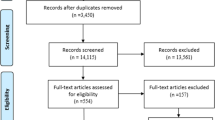Abstract
Conservative management of bowel obstruction in advanced cancer patients has been recognized as efficacious in controlling distressing symptoms such as nausea, vomiting and pain. A retrospective analysis of prevalence, treatment and outcome was performed. A group of 25 patients with signs of bowel obstruction were studied from 1001 consecutive patients receiving palliative care at home. A score for total distress was calculated to assess the gastrointestinal symptoms at diagnosis, after 1 week of treatment and 1 day before death. The mean survival was 19 days. Six patients were admitted to hospital, 3 of whom underwent surgery and died in the immediate postoperative period. The patients diagnosed in hospital and discharged received a nasogastric tube (7 cases) and a central venous line. The nasogastric tube was removed after gastrointestinal secretions had been controlled by a combination of drugs, and parenteral nutrition or hydration, mainly started in hospital, was discontinued only a few days before death (13 cases, mean duration 19 days). The distress symptom score was statistically reduced after 1 week of treatment and on the day before death when compared to the referral time. The most frequent combination of drugs was octreotide, haloperidol and low doses of morphine. A subcutaneous route was preferred for administering the drugs. Utilization of a wide range of drugs permits good symptom control for bowel obstruction in patients followed at home.
Similar content being viewed by others
References
Allan SG (1993) Nausea and vomiting. In: Doyle D, Hanks GW, MacDonald N (eds) Oxford text book of palliative medicine. Oxford Medical Publications, Oxford, pp 282–290
Baines MJ (1993) The pathophysiology and management of malignant intestinal obstruction. In: Doyle D, Hanks GW, MacDonald N (eds) Oxford text book of palliative medicine. Oxford Medical Publications, Oxford, pp 311–315
Baines M, Oliver DJ, Carter RL (1985) Medical management of intestinal obstruction in patients with advanced malignant disease. Lancet II:990–993
Bruera E, MacDonald RN (1989) Nutrition in patients with advanced cancer: an update and review of our experience. J Pain Symptom Manage 3:133–140
Chan A, Woodruff RK (1992) Intestinal obstruction in patients with wide-spread intraabdominal malignancy. J Pain Symptom Manage 7:339–342
De Conno F, Caraceni A, Zecca E, Spoldi E, Ventafridda V (1991) Continuous subcutaneous infusion of hyoscine butylbromide reduces secretions in patients with gastrointestinal obstruction. J Pain Symptom Manage 6:484–486
Fainsinger R, Chan K, Bruera E (1992) Total parenteral nutrition for a terminally ill patients? J Palliat Care 8:30–32
Fainsinger R, Spachynski K, Hanson J, Bruera E (1994) Symptom control in terminally ill patients with malignant bowel obstruction. J Pain Symptom Manage 9:12–18
Isbister WH, Elder P, Symons L (1990) Non-operative management of malignant intestinal obstruction. J R Coll Surg Edinb 35:369–372
Khoo D, Hall E, Motson R, Riley J, Deman K, Waxman J (1994) Palliation of malignant obstruction using octreotide. Eur J Cancer 30:28–30
Mercadante S (1994) I sintomi gastrointestinali. In: Mercadante S (ed) Trattamento del dolore e dei sintomi nel cancro avanzato. Piccin, Padova, pp 135–151
Mercadante S (1994) Parenteral nutrition at home in advanced cancer patients. J Pain Symptom Manage (in press)
Mercadante S (1994) The role of octreotide in palliative care. J Pain Symptom Manage (in press)
Mercadante S, Genovese G, Kargar JA, Maddaloni S, Roccella S, Salvaggio L, Simonetti MT (1992) Home palliative care: results in 1991 versus 1988. J Pain Symptom Manage 7:414–418
Mercadante S, Spoldi E, Caraceni A, Maddaloni S, Simonetti MT (1993) Octreotide in relieving gastrointestinal symptoms due to bowel obstruction. Palliat Med 7:295–299
Riley J, Fallon MT (1994) Octreotide in terminal malignant obstruction of the gastrointestinal tract. Eur J Palliat Care 1:2325
Ripamonti C, De Conno F, Ventafridda V, Rossi B, Baines MJ (1993) Management of bowel obstruction in advanced and terminal cancer patients. Ann Oncol 4:15–21
Ventafridda V, Ripamonti C, Caraceni A, Spoldi E, Messina L, De Conno F (1990) The management of inoperable gastrointestinal obstruction in terminal cancer patients. Tumori 76:389–393
Author information
Authors and Affiliations
Rights and permissions
About this article
Cite this article
Mercadante, S. Bowel obstruction in home-care cancer patients: 4 years experience. Support Care Cancer 3, 190–193 (1995). https://doi.org/10.1007/BF00368889
Issue Date:
DOI: https://doi.org/10.1007/BF00368889




